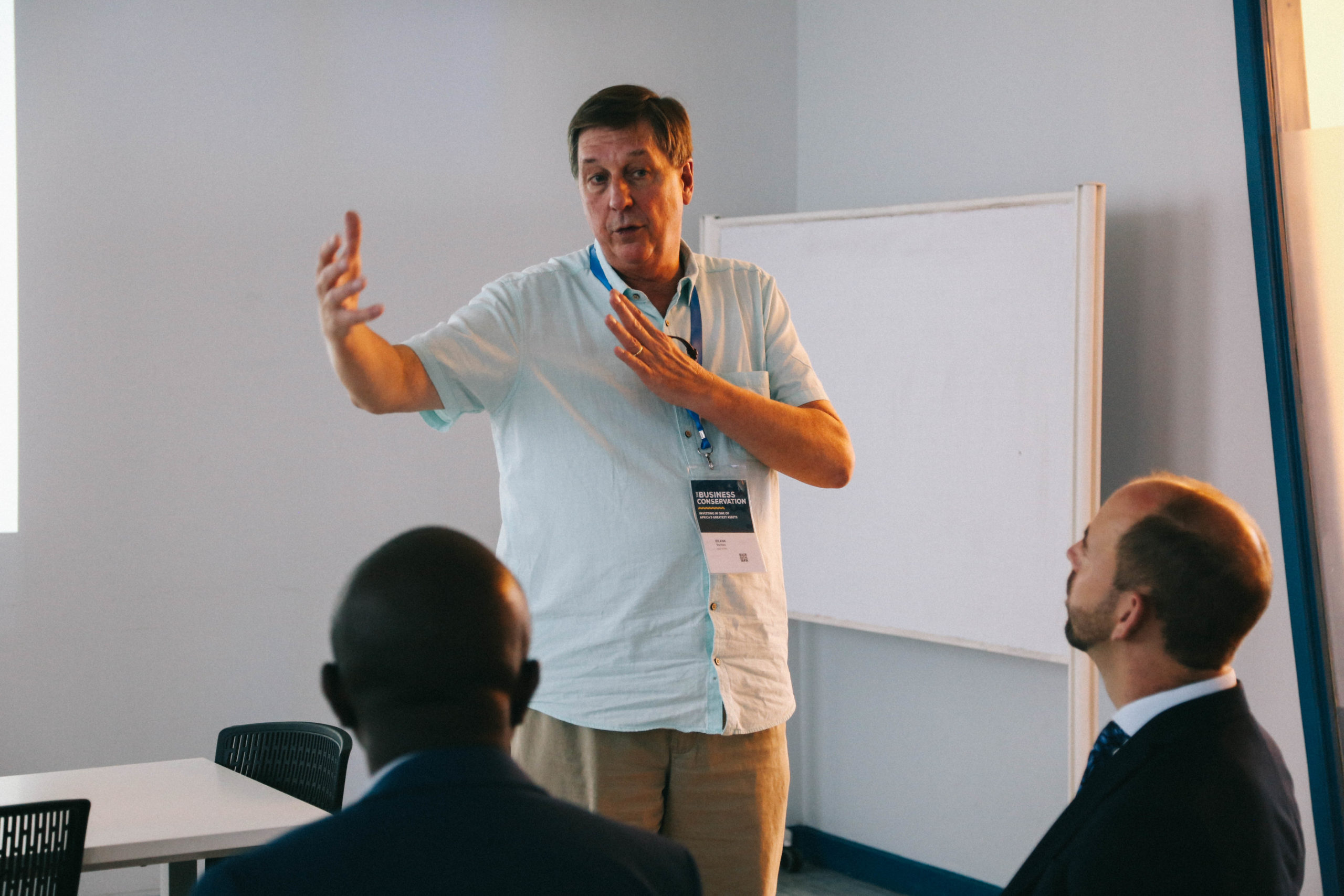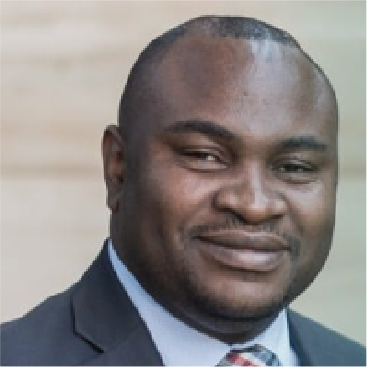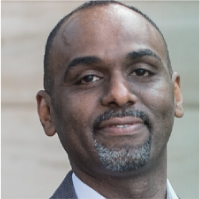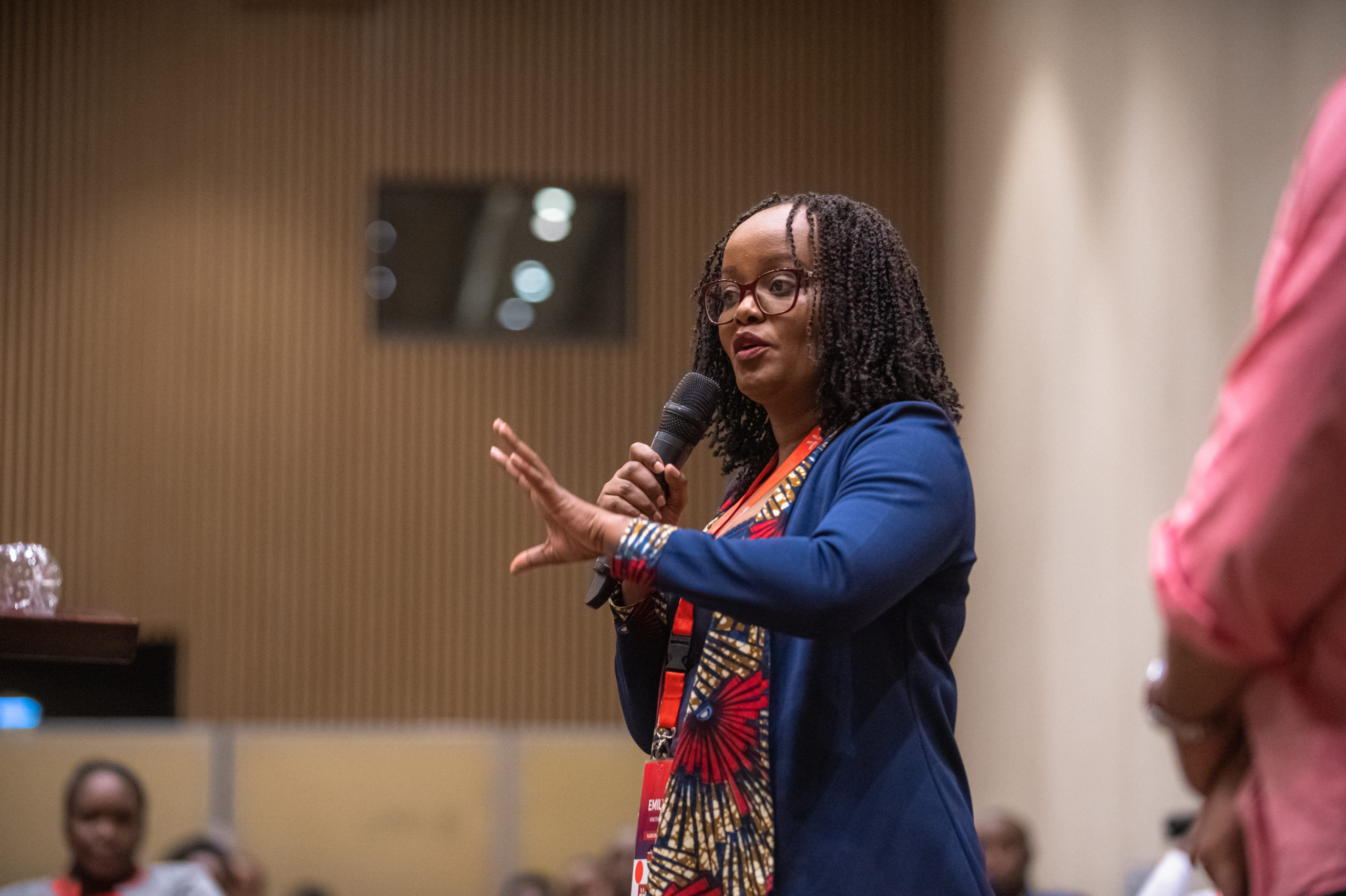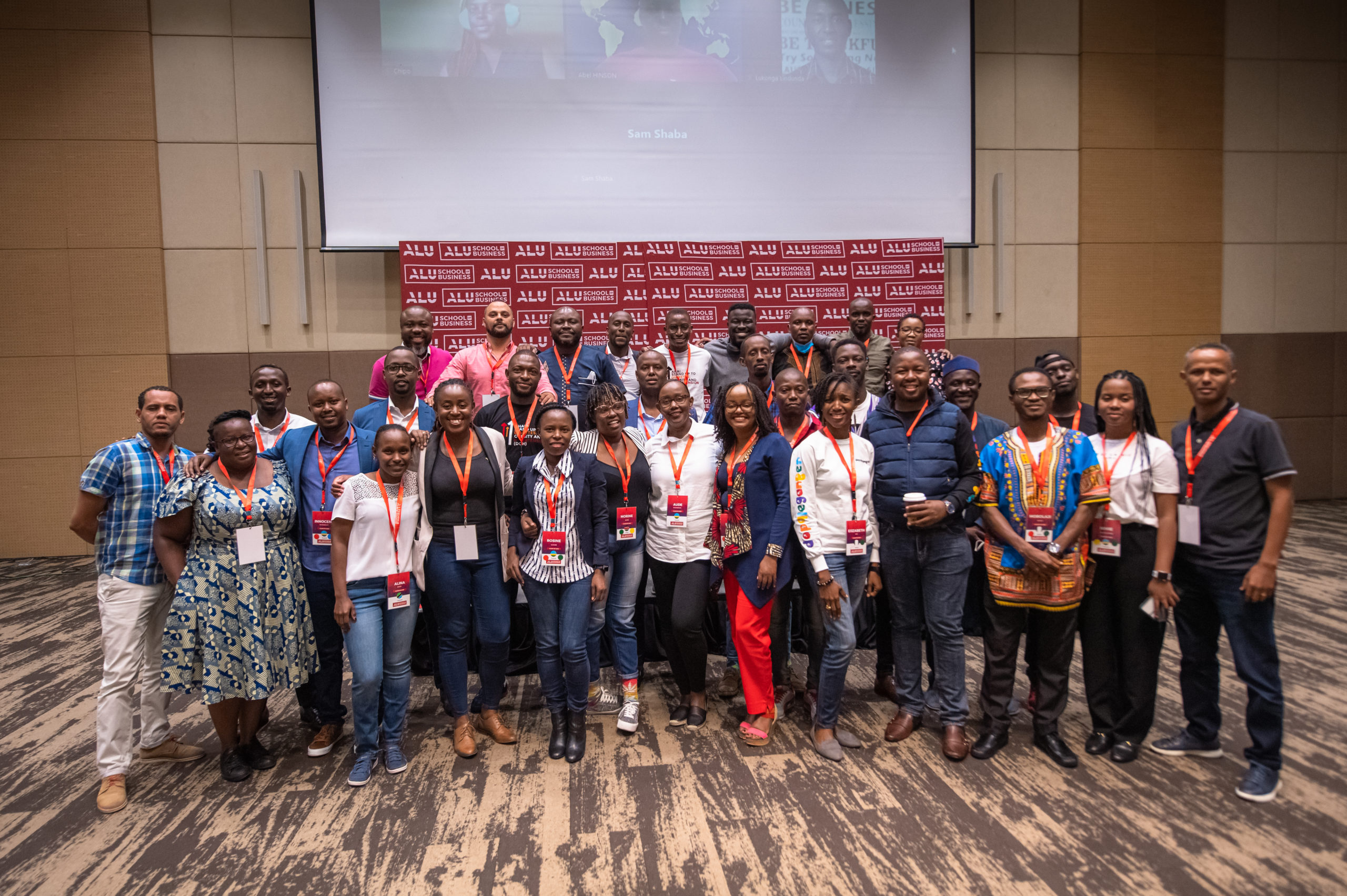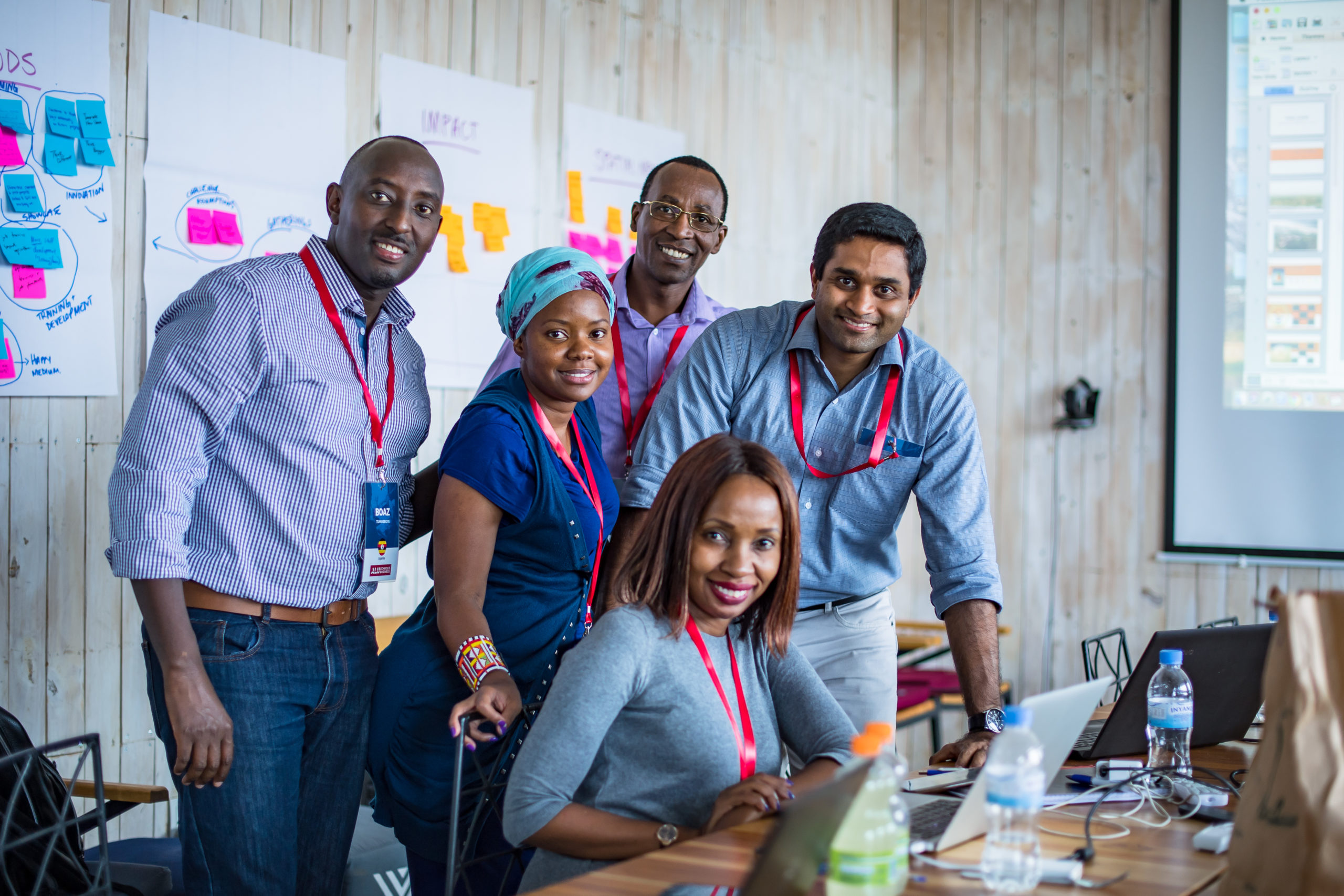We had the honour to sit down with one of the key figures behind the unique MBA collaboration between ALU School of Business and ALU School of Wildlife Conservation: Dr Francis Vorhies, Academic Director at ALU School of Wildlife Conservation, discusses the vital nexus of business and conservation – and how ALU is addressing the leadership deficit in the conservation field.
Francis Vorhies has racked up over 30 years of experience at the intersection of business, biodiversity and development. In short, he is the perfect interviewee to give us a look into the world’s first MBA programming for Conservation Leaders!
What drew you to work in conservation?
I moved to South Africa in the ’80s to work on the promotion of an equitable market economy for the post-apartheid era. During my time there, I visited a private wildlife ranch and met a couple who were saving wildlife as a small business. It wasn’t a national park, it wasn’t government-run; it was just a small company making money by saving nature. I never thought about conservation as a business opportunity before, but that was a turning point. Since then, I have been looking for ways to combine business and conservation across the African continent.
Could you tell us more about the ALU’s MBA programming for conservation leaders?
The African Leadership University in Kigali, Rwanda, has established the world’s first MBA experience for rising leaders in the conservation field. The collaboration between ALU’s School of Wildlife Conservation (SoWC) and School of Business (ALUSB) combines ALU’s rigorous, 20-month MBA degree with a specialisation in Conservation Leadership. SoWC’s specialisation includes five modules covering topics like Business & Biodiversity, Conservation Governance & Management, Conservation Markets & Finance and more, which are delivered in the classroom, via distance-learning modules and a field-based module.
The conservation-specific modules are designed to complement ALUSB’s MBA programme and help conservation professionals to apply MBA learning specifically to their field. For example, where the main MBA programme looks at management, we will look at conservation management. When they look at strategy, we’ll look at conservation strategy and policy.
The fifth course, Conservation in Practice, is a field module where the students will spend a week out in the field looking at conservation management. The lectures, the intensives, the assignments, the readings, the videos and the group exercises will be wrapped around these five modules.
What’s the one thing that sets the this conservation-focused programme apart from others?
At the moment, it’s the only game in town. It’s the first real attempt at putting together a high-quality MBA experience that is focused on the African challenges and opportunities for the conservation sector.
It’s a unique thing that we are doing at ALU: we’re looking at conservation as a platform for economic development, for growth, and for job creation. The programme is business-focused.We’re focusing on how the conservation sector can grow, how it can deliver goods and services, and how it can create inclusive employment opportunities.
But, what makes the programme unique is not so much people like me, but the cohort of mid-career students who are coming from different countries and different organisations. Enabling them to work together and develop their business and leadership acumen in the context of conservation challenges is really something special. The most exciting thing for them is having this 20-month space to go on a learning journey and become actual leaders in the conservation sector.
Why was the programme created?
The conservation sector has a real leadership deficit. That doesn’t mean that there are bad people in the sector or that they are uneducated… But the sector is mostly dominated by people who have studied natural sciences. And that is fine, but the conservation sector, like any other sector, is about much more than science. It’s about people, it’s about managing different groups, financial flows, marketing, product lines, value chains, and so on. There’s a real need for more leadership acumen in the conservation sector and ALU’s School of Business is the only school that offers an education that meets that need.
Who is the programme for?
Firstly, the programme is ideal for people who are already active in the conservation sector; people who either work for an NGO, are in public sector conservation management, or people who work in the eco-tourism sector, for example. But the programme is also very useful for people who don’t work in the conservation sector, but in intersecting industries that could threaten or damage the natural environment. Think of industries like mining, oil and gas, infrastructure… Finally, this programme is also a good fit for people who work in conservation-dependent sectors. These are industries that are dependent on nature like fisheries, agriculture, ranching and so on.
Essentially, this programme is designed for people who are interested in the business of conservation.
Why is the intersection of business and conservation so important?
If we don’t make conservation viable as a business, it’s going to be replaced. So conservation needs business, but there is also business to be made in conservation. Yes, we need zoologists, biologists and ecologists. But we also need leaders, we need entrepreneurs, and we need managers. So that’s what we’re trying to provide through this programme.
What are the outcomes that organisations can expect?
When the students do return to their organisations after the programme, we see that they have a much better chance of connecting the dots between the different parts of the organisation. We see that these students are able to play a more strategic and productive role in their organisation, either as a manager or by starting up new businesses in the conservation sector.
What kind of impact do you expect to see through this MBA?
In Africa, the impact would be to make conservation a viable business sector on the continent so that Africa’s wildlife can proven as a positive force for economic growth, increased revenues and job creation.
